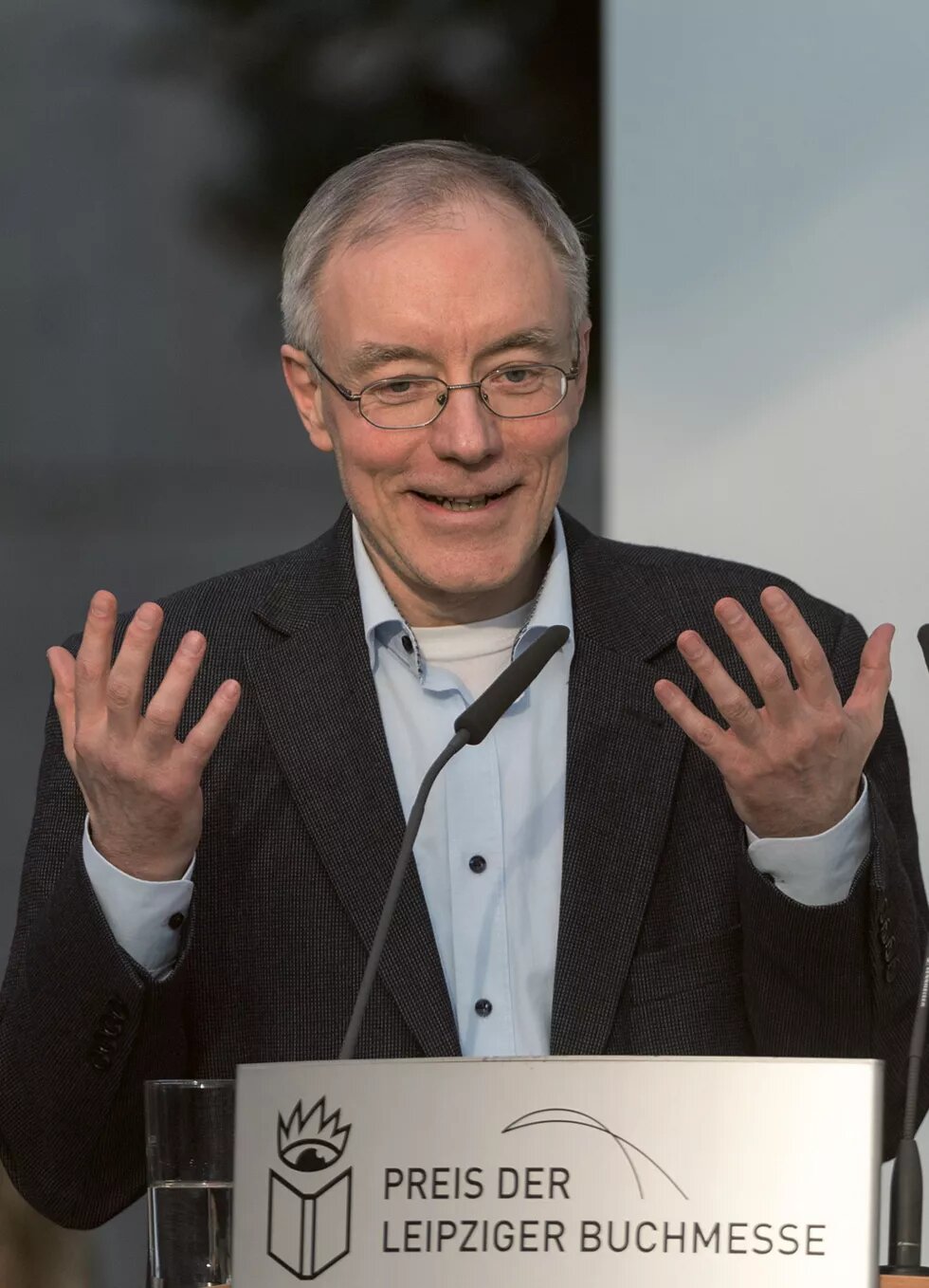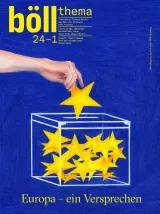A few days after the Russian invasion of Ukraine, in early March 2022, I wrote a somewhat sentimental text about Europe. Overwhelmed by a flood of text messages, emails, and other messages, too many for me to answer, I was grateful to my friends and acquaintances in various European countries. Everyone offered help and promised me and my family refuge – in Germany, France, Austria, Norway, Poland, and other places. I went on an imaginary trip across Europe, crossing various countries that I’ve visited before, from north to south. Mind you, these were not all the countries I have ever set foot in. My random route included Member States and non-Member States of the European Union, this political entity that is generally considered a success of European integration, that many in the world’s poorer countries admire as a continent of prosperity and that various right-wing populists demonize as the source of destruction of the sacred nation state. It is a community that only one of its members has ever chosen to leave so far, seduced by its island pride. It is a community that is routinely undermined by only one of its members, the one that is nestled in the vastness of the Carpathian Basin, likely trying to destroy the EU from within, much to the delight of radicals of all stripes across Europe and the dictator in Moscow.
But my imaginary journey, one I could well have taken in real life at a different time and under different circumstances (and I actually might, once the war is over), served a different purpose: I want to explain to my readers why I’m not leaving my home country. For in those early days after the invasion, giving up wasn’t even an option for me, nor for many other Ukrainians (in contrast to many Western politicians and pundits). Our mind was set on fighting for our freedom. At this time, European capitals had already expressed clear solidarity with Ukraine ‒ with words, but not yet with weapons.
Based on their own experience, the Eastern European EU states responded differently
I have written many texts since then. Some of these pieces I wrote under the impression of the tremendous support from ordinary people in Poland, Germany, France, Italy, and other countries. Another time, I wrote a rather despondent piece about the German government’s political failure and refusal to approve the delivery of armored medical vehicles. In yet another one, I expressed my delight with volunteers in Europe who provided us with all kinds of relief supplies. Then I was irritated by European pacifists who refused to call evil by its name and failed to distinguish between the attacker and the victim. Once, I wrote about European politicians who constantly sought new – and pointless – talks with Putin and who hesitated to provide resolute military support lest they provoke the Russian dictator. “To prevent an escalation of the situation,” as they word it in their political jargon, as if the constant bombardment of Ukrainian cities and the murder of civilians were not an escalation. The Eastern European EU states, which had experienced the horror of Stalinism and the almost unimaginable brutality of Soviet occupation firsthand, responded quite differently.
30 long years until the decision to start accession talks
Quick decisions and resolute action have never been among the EU’s strengths. A community that relies on the consensus of its members can only move slowly. Democracies have many strengths; swift decision-making is not one of them. Striving for political and social compromise has rendered the EU more stable than it might seem at first glance, albeit not immune to manipulation and hatred from the world of social media. But is that enough in times of war, when every delayed decision costs human lives? The gulf between a country at war and a country at peace seems almost insurmountable, as I discovered in October 2022 at the Frankfurt Book Fair on one of my now very rare trips abroad. A society at peace is driven by entirely different concerns.
It took almost 30 years from Ukraine’s declaration of EU membership as a strategic goal until the European Council decided to open accession negotiations. Would we be starting accession talks now if the country had not been invaded? I doubt it. However glad we are, this leaves a bitter aftertaste. Why do so many people have to die for decision makers to set the course toward the future (and even then not without resistance)? Apparently, visionaries have become rare in the age of Facebook.
Of course, Ukraine’s path over these 30 years has not been a straight line. We have seen two attempts to impose an autocratic regime, and both times the people responded with an uprising. In the Orange Revolution of 2004 and the Euromaidan of 2013–2014, we may not have achieved the best outcome, but we prevented the worst. As one Ukrainian political scientist once sarcastically remarked, at times, the dialog between Ukraine and the EU sounded like a conversation between an autopilot and an answering machine. The government in Kyiv insisted on an official document spelling out an explicit prospect of accession, yet without any legal obligations or a binding schedule, and it didn’t make very much effort to push through the necessary reforms either. Brussels duly pointed out that every country has the right to join the EU if it meets the Copenhagen criteria. It didn’t really seem that there was strong political will on either side.
The new Generation Independence is unsentimental about the past
Yet this 30-year period saw a generation grow up that was not born in the Soviet Union. Those children who were born in the waning years of the USSR, but have no conscious memory of it, could also have been included here. In a survey conducted in August 2021, however, it was the cohorts from 1991 onward that were symbolically named Generation Independence. To most of these young men and women, the Soviet Union is indeed completely alien. Unlike their peers and society at large in Russia, this generation has no nostalgia for Communism and the Soviet imperial past. According to Rating, a sociological research institute, only 10 percent of 18- to 24-year-olds and only 15 percent of 25- to 30-year-olds voice regret about the collapse of the USSR. More importantly, as early as 2013, the majority of Ukrainians had shed any nostalgia they may have felt for the USSR, and the number of people in favor of a Communist empire has continued to decline since then. Polls in Russia show a clear trend in the opposite direction. Six months before the Russian invasion, USSR enthusiasts were already in the minority across every age group in Ukraine. The Russian invasion did the rest.
Although Generation Independence has not yet risen to political leadership positions, it already played an important role in the Euromaidan of 2013–2014. And even back then, it was all about European integration. The protests, initially student-led, began after the Ukrainian government in power at the time suddenly refused to sign the negotiated association agreement with the EU (incidentally, directly following a visit by the then Ukrainian President and would-be dictator Viktor Yanukovych to his Russian counterpart Vladimir Putin).
In 2022, almost 90 percent of the population were in favor of EU membership
Even back then, the majority supported the country’s accession to the EU. This majority has grown steadily, with around two thirds of the population in favor of membership in 2021. Approval of EU accession spiked sharply and dramatically in the wake of Russia’s invasion of Ukraine. Since March 2022, approval has been just below 90 percent across all regions and age groups.
I don’t know if any other country has ever attained such numbers. But these are all just metrics. There are other figures that could be used – the numbers of casualties. The Euromaidan left several dozen dead or wounded. The war in the Donbas, started by Russia in 2014, killed or wounded thousands. Now, following the massive Russian invasion and daily terror against civilians, the figure is in the tens or even hundreds of thousands. It would be an exaggeration to say that each victim died for European values. But they all wanted to live in freedom, peace, dignity, and prosperity. Dictators don’t like that. That is why they are prepared to invade independent countries and kill people. We must not forget this truth behind the dry statistics. We Europeans don’t have another 30 years.
Yuri Durkot, born in Lviv, is a journalist, translator, interpreter, and writer. He studied German language and literature in Lviv and Vienna and has worked as a freelance journalist for Austrian newspapers. From 1995 to 2000, Yuri Durkot was press spokesman for the Ukrainian Embassy in Germany. Since the end of 2000, he has worked as a freelance journalist, publicist, translator, and producer for the German-language press and public broadcasters.

